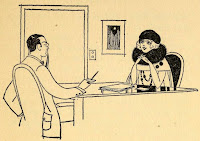 |
What is Idea Misappropriation?
Idea misappropriation occurs when someone uses another's idea without permission or compensation, typically after the idea was disclosed in a confidential or business relationship. Unlike copyright infringement, these claims don't require that the idea be fixed in a tangible medium. However, not all ideas qualify for protection—courts generally require that ideas be novel, concrete, and sufficiently developed beyond abstract concepts. Because the standards and remedies differ widely, recovery for the theft of an idea ultimately depends on state law, underscoring the importance of consulting local counsel with entertainment law experience.
Understanding the Required Relationship
Courts require a confidential or business relationship between the parties. This typically means:
- The recipient solicited the idea for potential business use
- There was an expectation of confidentiality (express or implied)
- The disclosure occurred in a professional context, not casual conversation
Protecting Your Ideas
To protect yourself against idea misappropriation, there must be a special relationship between you and the person receiving your pitch or reviewing your material. The landmark California case Desny v. Wilder (1956) established the framework for protecting ideas through implied contracts, but also warned writers about unsolicited submissions. As the court cautioned: "The idea man who blurts out his idea without having first made his bargain has no one but himself to blame for the loss of his bargaining power."
Deal with Reputable Parties. Research the track record and business practices of individuals and companies before sharing ideas
Create a Paper Trail. Maintain detailed records of including: dates, attendees at all meetings, written summaries of what was discussed
Follow-Up Communications. After pitch meetings, send a follow-up email or note summarizing the discussion and confirming that the meeting was for the possible development of your project.
Document Your Idea: While copyright registration doesn't protect the underlying idea, documenting your expression through Copyright Office registration or Writers Guild registration establishes a timeline and demonstrates development.
Non-Disclosure Agreements (NDAs). In theory, the best way to protect an idea is to have the recipient sign an NDA before you share it. In practice, however, the major players—whether the “Big Five” New York publishers, Disney, or Amazon MGM Studios—will not sign NDAs. In Hollywood the studios rely instead on idea submission policies or boilerplate submission agreements, which typically state that unsolicited ideas become company property or may be used without any obligation to compensate the submitter.
Legal protection varies significantly by state or jurisdication, and understanding these differences is crucial for determining where to pursue claims:
Contract Theory (California and other states): Courts may find implied contracts when ideas are submitted with expectation of payment if used. The idea must typically be novel and concrete, and there must be evidence the parties understood compensation was expected.
Property Theory (New York and other states): Some states treat sufficiently novel and concrete ideas as quasi-property, protectable regardless of contractual relationships. After establishing that the idea merits protection as property, the plaintiff must demonstrate that the defendant used it without authorization.
Copyright law provides scant protection for idea submitters, focusing on expression rather than underlying concepts. As Dorothy Parker famously observed, "the only 'ism' in Hollywood is plagiarism." Her wry remark reminds us that while borrowing and imitation may be part of the industry's DNA, they represent ethical lapses rather than legal infringements. Courts don't conflate plagiarism with copyright violation—the former is a question of professional ethics, the latter a matter of enforceable law.
The legal standards for proving idea misappropriation remain demanding, particularly the requirements for novelty, concrete development, and establishing the requisite confidential relationship.
For writers, this emphasizes the importance of preventive measures—proper documentation, and careful relationship management—rather than relying on litigation as a primary protective strategy. While idea misappropriation claims provide some protection beyond copyright, they remain challenging and expensive to pursue.
###
DISCLAIMER: This article provides general information and should not be construed as legal advice. Laws vary by jurisdiction and specific circumstances. Consult with qualified legal counsel for advice regarding specific situations.
ABOUT THE AUTHOR. Lloyd J. Jassin is a New York publishing and entertainment attorney with 30+ years of experience representing bestselling and first-time authors (and their heirs), literary agencies, and publishers. A former publicity director at Prentice Hall Press (a division of Simon & Schuster), he combines legal expertise with deep industry knowledge.
Mr. Jassin specializes in book contract review and negotiation, manuscript clearance for libel and privacy law compliance, book-to-film/TV deals, brand protection, and complex rights reversions for authors, composers, and literary estates. He co-authored The Copyright Permission and Libel Handbook (John Wiley & Sons) and has been quoted in The New York Times, Wall Street Journal, Forbes, and Time Magazine.
An active member of the publishing community, he has spoken at BookExpo and Publishers Weekly conferences, served as an adjunct professor at NYU Center for Publishing, and previously chaired the Center for Independent Publishing executive committee. He currently serves on the Beacon Press advisory board.
Licensed to practice law in New York and New Jersey, Mr. Jassin counsels clients on all aspects of content creation, copyright, trademark, defamation and privacy law in the evolving entertainment landscape.
Contact: Jassin@copylaw.com | (212) 354-4442 | 104 West 40th Street, New York, N.Y. 10018. With offices in Morristown, N.J.
Related Articles
Can You Copyright Historical Facts? A Writer's Guide to Historical Fiction Copyright
(c) 2025. Lloyd J. Jassin.

.jpg)

